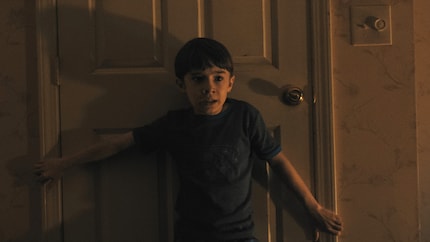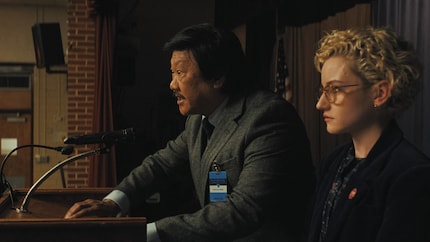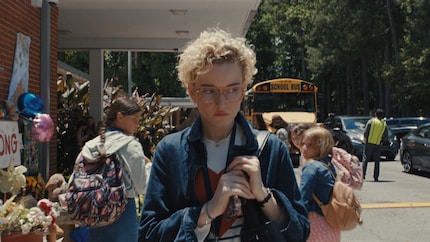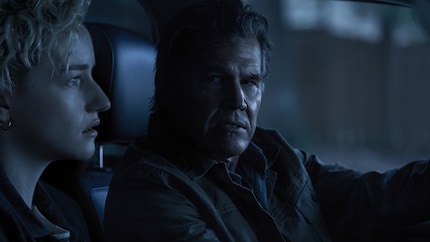
Review
Ne Zha 2: the Chinese blockbuster nobody in the West has heard of
by Luca Fontana

What happens when a mystery horror film gives away its answers too soon? Weapons starts like a nightmare, then divides the audience – and yet still draws them in. Maybe that’s why.
This film review contains no spoilers. Everything mentioned here has already been revealed in trailers. Weapons was released in cinemas on 7 August.
I actually hate these kinds of films. Not because they’re too gory – that doesn’t bother me at all. It’s because they’re too good. Hereditary, Smile, The Conjuring – the list goes on. They don’t just throw in a shocking moment; they slowly and gleefully wear me down. And yet here I sit, ready to watch the latest release. By choice.
Why? Because of its perfect critics’ score so far. At least it was today (6 August) if you believe Rotten Tomatoes. And that’s despite the fact that there are hardly any official reviews. The film’s shrouded in mystery, with its low-key promotion at almost conspiracy levels. Until this trailer celebrated exactly that score.
«Perfect score,» it says in the headline above – and «you were warned» flashes up later in the trailer.
Oh god.
I don’t know what worries me more: the sheer premise of Weapons or the possibility that the film could live up to that premise. Because it’s a really strong one.
Maybrook, Pennsylvania. Sixteen children get out of bed one night at exactly 2.17 a.m., open the front door, stretch out their arms – and run out into the darkness. Like little bombers heading towards a target. No coercion, no violence, just a collective impulse that defies all logic. The only thing left is an empty classroom and one boy named Alex, who was spared. Or forgotten. Or chosen.
Who knows?

This all sounds like the beginning of a Stephen King novel – and it feels like one. Except Weapons was written by Zach Cregger. A man who demonstrated with Barbarian how much horror lurks in the cracks of normality. This time, he doesn’t take us to a creepy Airbnb; we’re in a typical American suburban hell – where the real monster doesn’t live beneath the house, but within its inhabitants.
Because as disturbing as the children’s disappearance is, the true escalation only happens afterwards. Parents who start off trembling soon begin to scream. Anger replaces grief, and Justine Gandy – the missing children’s teacher, played brilliantly by Julia Garner – becomes the target of collective blame.

What Cregger does next is clever: instead of focusing on Justine, he presents the events from six different perspectives. As if through a dark prism: the father of a missing child (Josh Brolin), a cop (Alden Ehrenreich), a junkie (Austin Abrams), the school principal (Benedict Wong) and another whose role I won’t spoil here.
Each one tells their own story. Every perspective is a new piece of the puzzle. And the more pieces we see, the clearer – but more disturbing – the picture becomes. Because what we see isn’t just a mystery. It’s a mirror. A mirror of our society. Of our fear.
Of our mania.
It’s powerful. Really powerful. Because Weapons doesn’t just want to be a disturbing thriller for the sake of horror. It also addresses how we turn ourselves into weapons and how anger transforms people when pain distorts their truth. So that an incomprehensible loss becomes a witch hunt that pays no attention to collateral damage.

No wonder horror master and Get Out director Jordan Peele was so keen to see the film made by his own production company, Monkeypaw. It’s a bit like his horror films, which always oscillate between bloody spectacle and social commentary.
Apparently, Peele was so frustrated at ultimately losing out on the rights to Zach Cregger’s new film that he sacked his longtime manager. This hasn’t been officially confirmed. But the rumour somehow fits the picture of a film so mysterious that even its production is myth-worthy.
In any case, the film tells two thirds of its story with cold elegance, quiet power and a camera that continually reveals exciting new perspectives. And then there’s the frighteningly good score, which creeps under your skin without ever being intrusive. This makes the entire film incredibly oppressive, while your brain spins its own ghost stories for a long time – with connotations of school massacres, conspiracy theories and moral decay.
But then comes the final act.
The problem is: at some point, the puzzle comes together. Piece by piece. And as soon as the bigger picture is revealed, Weapons loses its focus. Its pull. Not because the resolution’s bad, but because the suspense up until that point relies primarily on not knowing how everything fits together.
But when you do find out, the film still has at least half an hour left to run. Half an hour that – without any hypnotic mystery – feels quite long. It’s almost as if Weapons is treading water. The puzzle’s gone. Nothing’s left to interpretation. There’s nothing left to guess. And then something else happens:
The tone of the film shifts.

What was previously subtle and psychological suddenly becomes much louder, more grotesque and almost comically exaggerated. It’s as if I’d suddenly started watching the wrong film. Is it intentional? I think so. Director Zach Cregger knows exactly what he’s doing. He clearly wants to disturb, surprise, maybe even challenge. Many will find this bold and original. Others, like me, will feel a bit lost.
Because as much as I appreciate films taking risks, I can’t really relate to that final break in tone. The dark, emotional connection that’d slowly built up beforehand gets a bit lost in the final noise. Instead of a final climax, what’s left is a feeling of confusion.
It’s hard to say whether that’s good or bad. But it bothers me. And maybe that’s exactly what the film’s aiming for.
Weapons isn’t a perfect film. But it starts like one. What Zach Cregger directs here is masterful for the most part. It’s a hypnotic mystery horror that burrows deeper into our subconscious with each new perspective. It suggests more than it explains, and that’s what makes it so disturbing.
Only towards the end does the film lose its grip somewhat. Not completely, but noticeably. The pull diminishes, the tone shifts, the emotional clarity evaporates. What remains is a film that’s brave. That dares to be different – and is vulnerable for that very reason.
I write about technology as if it were cinema, and about films as if they were real life. Between bits and blockbusters, I’m after stories that move people, not just generate clicks. And yes – sometimes I listen to film scores louder than I probably should.
Which films, shows, books, games or board games are genuinely great? Recommendations from our personal experience.
Show all